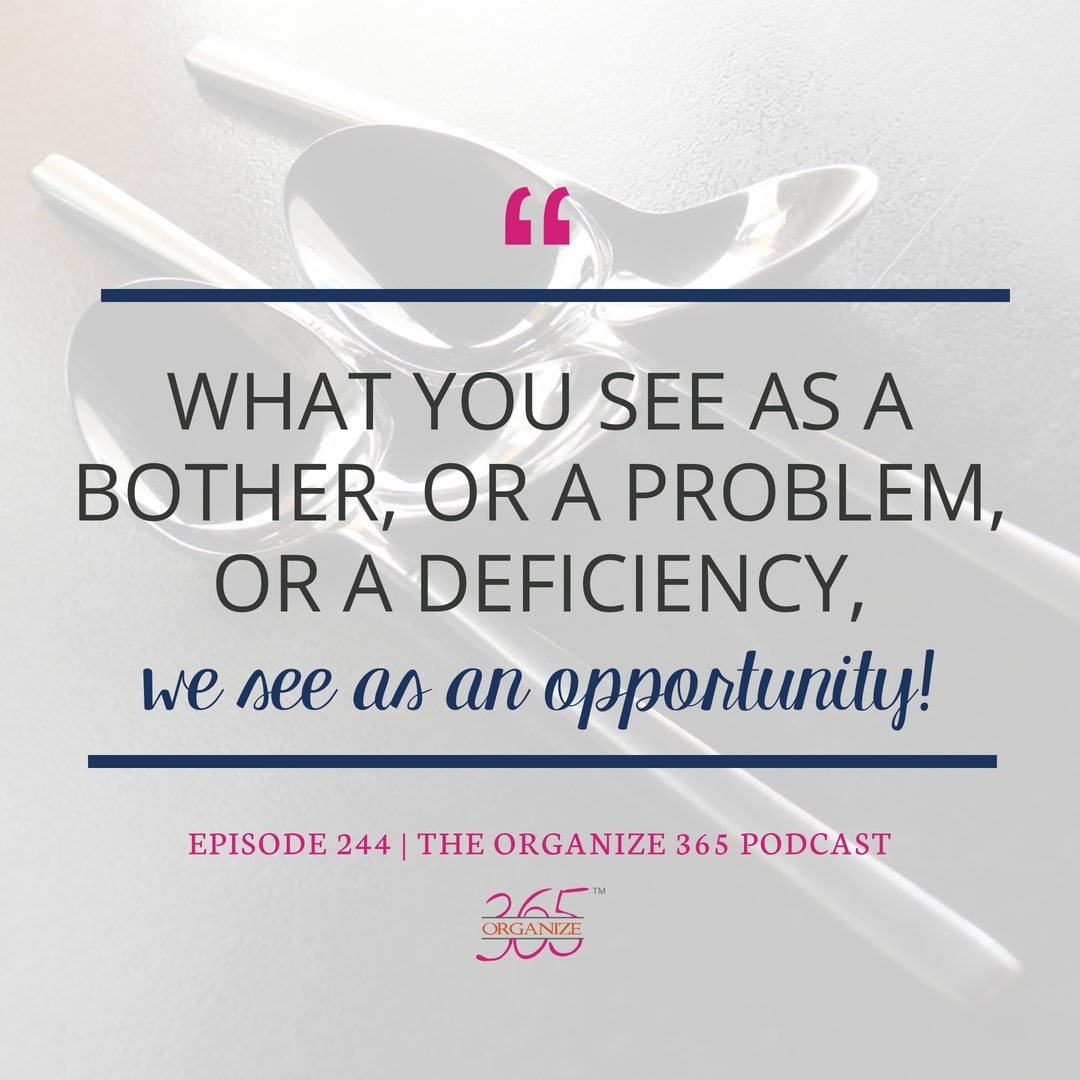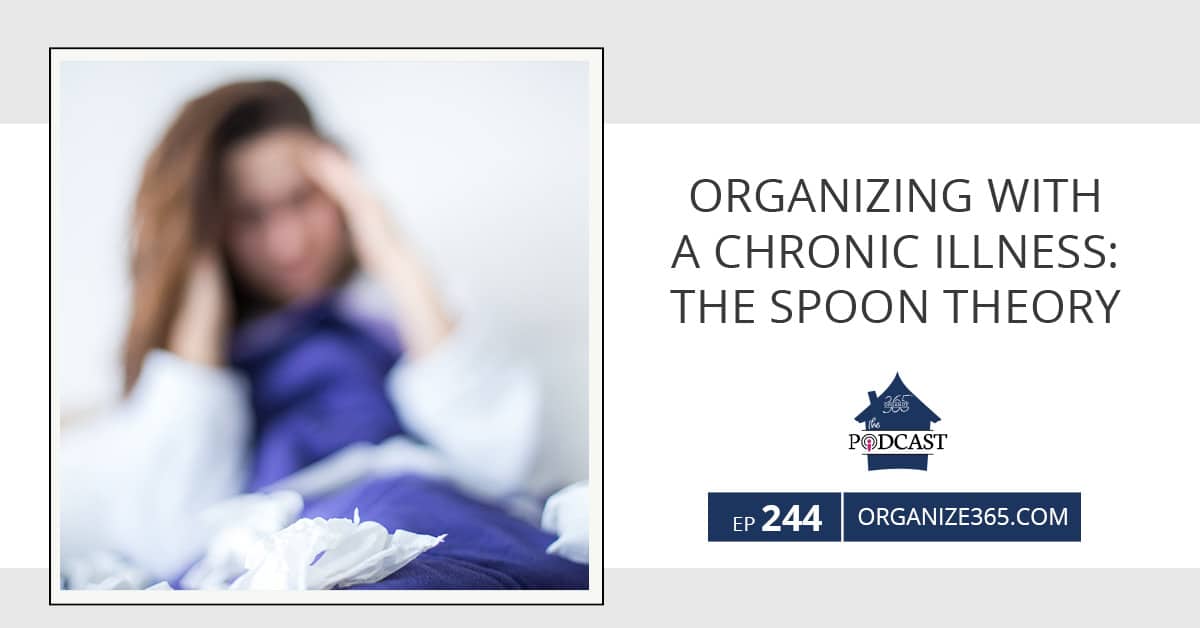
I have a lot of energy. A lot. I have more natural energy than most people I know, and certainly more than anyone in my family. It’s definitely a major part of the reason I am so productive and organized in my life.
However, it’s not the only reason! I also have systems and methods in place that work, so that if I am sick or get busy or something unexpected comes along, my house doesn’t completely fall apart.
During my years as a professional organizer I’ve encountered lots of people who tell me it would be nice to be organized, but it would also be nice to feel well enough to get out of bed. If you feel that way, today’s podcast is for you.
In today’s episode, I explore Christine Miserandino’s Spoon Theory, which you may have already heard of, especially if you have a chronic illness. This theory outlines the fact that those living with an illness–whether it’s visible to the outside world or not–simply have less capacity for activities than those who aren’t.
I don’t mean that those with an illness can’t run marathons like some others–I mean that those with an illness find it difficult to both wash their hair and cook themselves breakfast because those tasks deplete all their available energy. For someone in that situation, home organization can feel like an unachievable dream. Unless their illness goes into remission, they simply won’t ever be able to get their home organized.
If you are truly unable to get out of bed most mornings, it’s likely that you already have someone helping you with your daily tasks–a family member, a home health aid, or a housekeeper. In this episode, I am encouraging you to reframe the tasks those people are completing and see if you can rearrange them to help you reach your goal of home organization.
And it’s not just something you should hope for, either. Having a disorderly, cluttered home actually increases cortisol in the brain. And do you know what doesn’t help the body heal? Cortisol, stress, overwhelm, and depression. I’ve said this before, but it’s vital to your health and your quality of life that you don’t live in chaos.
While no one in my family (thankfully) lives with a chronic illness, my kids do have learning disabilities and processing disorders which meant that tasks I took for granted as being easy–making a bagel, for instance–took them more mental energy and time to complete. In my two books, How ADHD Affects Home Organization and The Mindset of Organization, I talk about processing speeds and task initiation, and how those who are wired differently respond to tasks differently. The same can be applied to chronic illness, as well.
Simply put, you need help. Whether it’s a professional organizer in your home, a virtual professional organizer, a mother’s helper, a housekeeper, or a combination of these, you need help. Getting your home organized is important. Your health and well-being are important. If you are living with a chronic illness, you simply can’t do both on your own. In today’s episode, I make suggestions that may work for you, and they may not be as costly as you think.

Be good to yourself, and remember, even the mental practice of listening to the Organize 365 podcast is progress. You can do this!



